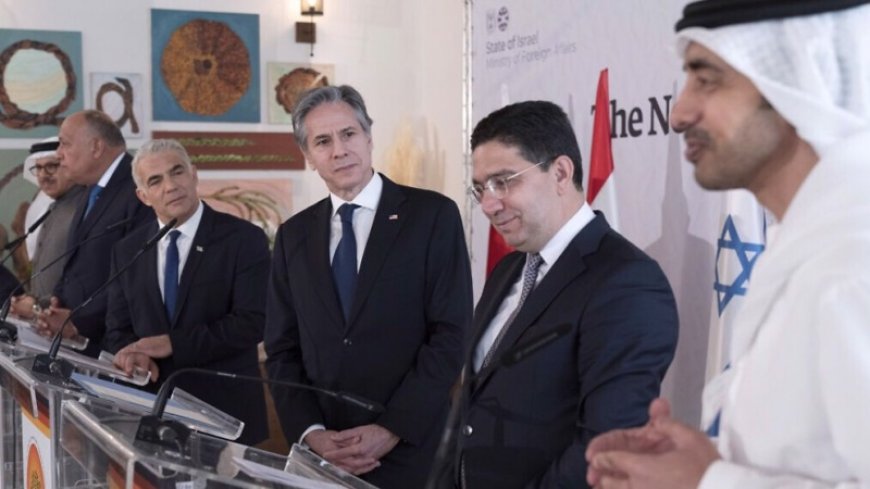Western Sahara: Israel blackmails Morocco
Western Sahara: Israel blackmails Morocco

Israel has linked the eventual recognition of Morocco's dominance over the disputed Western Sahara region to the North African country hosting a repeatedly postponed meeting between Israeli officials and the foreign ministers of four Arab states. involved in standardization agreements negotiated by the United States.
Israeli Foreign Minister Eli Cohen told reporters on Monday that they would announce the "final decision" on Morocco's sovereignty over Western Sahara at the forum which is expected to take place in September or October."We are working on this right now and expect to make the final decision at the Negev Forum," Eli Cohen said. Aviv sought in exchange for recognition of Morocco's dominance over Western Sahara.
Earlier, in late June, Israeli Parliament Speaker Amir Ohana said during his visit to Morocco that Israel would soon announce its support for Rabat's claims of sovereignty over the Western Sahara region, still seen by the UN. as a Non-Self-Governing Territory whose status remains to be determined.
Morocco, citing Israel's repression and vicious actions against the Palestinians, postponed the Forum last month. Originally scheduled for the summer of 2023, the event was postponed by Morocco. On June 23, the head of Moroccan diplomacy announced his postponement due to “a political context”. Notably, he pointed out that Rabat had “rejected the Israeli government’s recent decision to expand settlement activities in the West Bank.”
The so-called Negev Forum was established following a March 2022 summit hosted by former senior Israeli diplomat Yair Lapid at Kibbutz Sde Boker in the Negev desert. cooperation between Bahrain, Egypt, Israel, Morocco, United Arab Emirates (UAE) and the United States. These are the countries involved in the Abraham Accords, US-brokered agreements between Israel and Arab countries to normalize diplomatic relations.
Morocco annexed the vast region of Western Sahara, a former Spanish colony, in 1975 and has since been in conflict with the Algerian-backed Polisario Front - a movement that seeks to establish and end an independent state in the territory. to the presence of Morocco.
Morocco currently controls 80% of the region, including its phosphate deposits and fishing waters. He built a wall about 2,700 kilometers long crossing the disputed territory to keep the Sahrawis away from the resource-rich area.
The indigenous population of Western Sahara is firmly opposed to Moroccan control and has called for the North African country's independence and a referendum on its self-determination, which the region has been promised in UN resolutions.
The UN deployed the MINURSO peacekeeping mission to the region to monitor the 1991 ceasefire and organize a so-called referendum on the region's status. However, envoys from the world body n failed to prepare the ground for a referendum on the future of Western Sahara.
The long-standing conflict between the two sides has received renewed attention due to the growing frustration of the Sahrawi people, particularly after the United States ignored UN efforts in supporting Morocco's claim to sovereignty over the country. entire disputed territory in 2020.
Morocco has become the fourth Arab country - after the United Arab Emirates, Bahrain and Sudan - to reach a normalization agreement with Israel, which was brokered by the administration of former US President Donald Trump in its final days. in power.
As part of the controversial agreement, Trump agreed to recognize Morocco's authority in Western Sahara. US President Joe Biden has not taken action to make recognition of Morocco's sovereignty effective on the ground. Morocco announced by his predecessor.













































